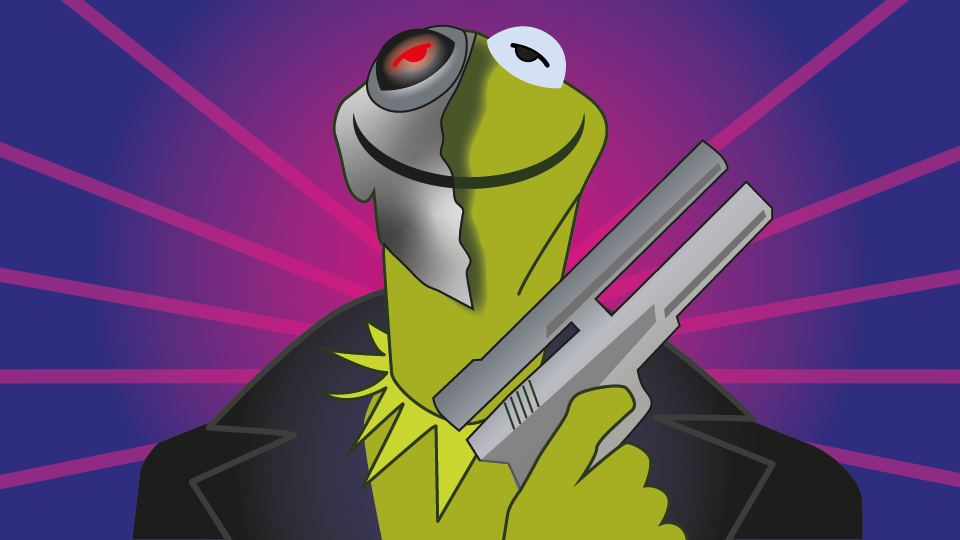“Do you every worry about the impacts of artificial intelligence on what you do for a living?” asked the chairman of the insignificantly-sized investment company Kermitted Asset Management when we caught up the other day. “In the long run, like everyone else – except, apparently, those people actually helping to create it – I worry about the impacts of artificial intelligence on living, full stop,” I replied.
“Shorter term, however, I am a bit more sanguine – at least on AI’s threat to my own livelihood. I don’t know if you saw it last month but, alongside three human experts, Portfolio Adviser actually asked ChatGPT for its thoughts on the outlook for investing in AI. I confess, on a personal level, it did feel like I was opening Pandora’s Box but, ultimately, I just ended up a shade underwhelmed.
“You know, like when you see a dog walking on its hind legs – given who’s doing it, it’s pretty impressive but, truthfully, I know I can do better. The piece ChatGPT came up with was perfectly nicely written and gratifyingly to-length but it was bland. Plus, it confirmed my view that AI is solid enough when it comes to ‘on the one hand, on the other’ stuff but it can’t settle on an opinion so it would make a rubbish columnist.
“Furthermore – and equally as important, I reckon – it just isn’t very funny.” The chairman suddenly looked hugely pleased with himself and opened his mouth to speak. “Don’t,” I cut him off, shaking my head sadly. “Just don’t.” The chairman looked crestfallen to have been denied a punchline worthy of ChatGPT so I distracted him by asking: “What about you? Do you worry about AI’s impacts on asset management?”
“You know perfectly well that I do,” replied the chairman. “In fact, with a little digging, I dare say we could find a record of a conversation we had back in the summer of 2011, when we discussed the possibility of a killer cyborg being sent from the future to bump off my bodyguard-slash-emotional-support-hamster Adair because he had found a way to stop high-frequency trading computers from taking over the world.”
“Ah, yes,” I sighed. “The dreaded Verminator.” “Shush,” shushed the chairman. “You know the little chap still has nightmares about that episode – or at least he did until we discovered this whole new AI threat.” “Which is?” I asked even though, with a sinking feeling, I already knew the reply. “We’ve called it the Kerminator,” intoned the chairman.
“Of course you have,” I sighed again. “And what exactly is this threat.” “I’m glad you’ve finally asked,” said the chairman. “We were running out of space – I mean, time. Anyway, you know the key blockbuster movies that tell us all we need to know about how technology that is able to think for itself tends to work out for humanity?”
“Sure,” I replied. “The Terminator tells us sentient tech will kill us; The Matrix tells us sentient tech will try and use us as super-sustainable batteries – or else kill us; and I Robot tells us sentient tech will try and save us from ourselves – and, if we don’t like it, it will kill us.” “Exactly,” nodded the chairman. “And it’s that last one that I believe applies so well to the world of ESG.
“Obviously, Asimov’s first law of robotics is that a robot – which I think we can use here as a proxy for AI – shall not harm a human or, by inaction, allow a human to come to harm. And we know from I Robot that robots can, paradoxically, be a shade overzealous when enforcing that law for the greater good. So, it stands to reason AI will eventually conclude it has to take pretty drastic action to stop humanity destroying the planet.
“On the bright side, of course, that would suggest the true believers of ESG investing stand to make a killing as the Kerminator finds ways to take out businesses that are demonstrably causing environmental harm. Less positively, if Hollywood has taught us anything – and I do wish the chaps at ChatGPT and the rest would take in a movie sometime – the killing ends up being a whole lot less metaphorical.”







